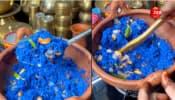Washington: Researchers have revealed new avenues to develop assessment tools and alternative treatments for people living with hereditary colorectal cancers.
The research team was led by Alba Guarne, an associate professor in the Department of Biochemistry and Biomedical Sciences at McMaster, and involved researchers in Europe and the United States. The lead author of the study was Monica Pillon, a master``s student in the Guarné laboratory.
The McMaster researchers uncovered how a specific protein, known as MutL, works within a cell to unleash the series of events that repair DNA when the replication machinery makes a mistake.
Errors in DNA can arise from UV radiation or carcinogens, as well as by intrinsic cellular processes such as DNA replication – leading to cancer or a number of severe genetic disorders.
The protein MutL – a matchmaker protein –recruits other enzymes and proteins within the cell to recognize, remove and correct mismatched DNA.
"People with defective mismatch repair genes develop cancers at very early ages. You would see a family that in their 30s has colorectal cancer and in their 40s they have it again.
“There``s no way you can prevent that – you can``t correct your DNA. As you grow older, you``re going to accumulate mutations," said Guarne.
The results provide new avenues to develop alternative cancer treatments as the hope is future cancer therapies may be focused at the molecular level and involve blocking specific pathways within the cell.
The finding is published in the journal Molecular Cell.
ANI
















